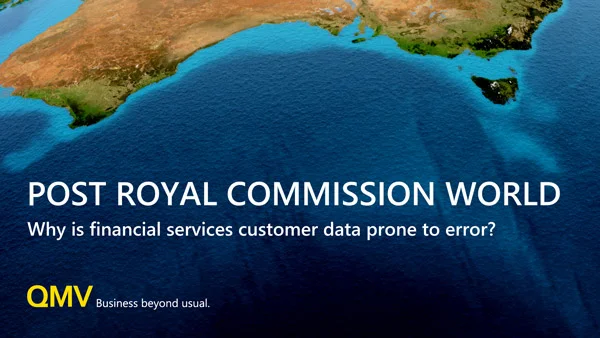The Prudential Standard CPS 230 sets out stringent requirements for operational risk management in the superannuation industry. By implementing a robust framework and adhering to these requirements, APRA-regulated entities can effectively manage operational risks, maintain the continuity of critical operations, and enhance their resilience to disruptions. This, in turn, contributes to the stability and integrity of the superannuation industry, promoting trust and confidence from customers, stakeholders, and regulators alike
Read MoreThere has never been more reliance and importance on data to provide administration of consumer products effectively and efficiently. The Optus data breach is a significant and public example of data may be used for fraudulent purposes, however, there is an ongoing risk that must be mitigated to ensure that, regardless of scale or publicity, consumer interests are protected as much as possible.
Read MoreThe risks of greenwashing are becoming increasingly prevalent and appropriate management of these risks requires input, commitment and training across all areas of a trustee’s operations.
An understanding of how sustainability and responsible investing has been incorporated into the trustee’s investment decision making is a basic requirement for all staff to ensure any representation made is clear and accurate. Penalties for non-compliance are considerable and even a sniff of greenwashing brings about significant media scrutiny and associated costs to the trustee, both financial and reputational.
Read MoreConsumer scams, identity theft and fraud have boomed during the COVID-19 pandemic prompting superannuation funds to bolster fraud prevention strategy. Upgrading from insecure pins, challenge questions and two-step code verifications is a critical security measure in the fraud prevention framework to protect member accounts from a multitude of current and imminent threats.
Read MoreThe best interests duty is in many ways the cornerstone to the regulation of the superannuation system and has been the most important guiding principle for Australia’s superannuation industry.
Read MoreAs the industry moves away from ad-hoc or project-based optimisations to more holistic and integrated digital capability, the fund needs ‘mastermind’ thinkers on the transformation program ideally with the trifecta of technology, data and superannuation pedigree.
Read MoreInvestigate data quality management platform begins transforming customer and organisation data quality on day-one, enabling financial institutions in their pursuit of data-driven business growth.
Read MoreFor many super funds, combining the best elements of two or more funds is an attractive venture, and in some cases, an inevitable one, with evidence and industry pressure behind it. APRA’s heatmaps still show 18 chronically underperforming super funds, and analysis from Super Consumers Australia estimates that mergers are leaving the average member $15,000 better off in retirement, primarily from fee-savings.
Read MoreOn 17 February 2021, the Government introduced and read a first time Treasury Laws Amendment (Your Future, Your Super) Bill 2021 (Bill). The Bill was then referred to the Senate Economics Legislation Committee with a report due on 22 April 2021.
Read MoreCustomers expect financial institutions to correctly calculate their financial position and to know exactly who they are. No one wants to be at a loss, especially when it is someone else’s fault. A miscalculation, an administrative mistake, lack of insurance coverage, or other errors, can cause customers to feel wronged, robbed, not cared about or even marginalised.
Read MoreThe Financial Sector Reform (Hayne Royal Commission Response) Bill 2020 introduced into Parliament departs significantly from the draft legislation as it relates to advice fees in superannuation – this is likely the reason for the delayed introduction and separation from the Hayne Royal Commission Response Bill.
Read MoreThe Hayne Royal Commission raised a question mark over the quality of customer data held by financial institutions and emphasised that action after the fact via costly data remediation events was not good enough. In a post royal commission world, it is important to know why customer data is so prone to error.
Read MoreIt is no longer solely the domain of lawyers and judges to interpret the regulatory obligations placed on superannuation funds. It is an increasingly important skill for senior executives, risk, compliance, and even project and IT professionals.
Read MoreA Successor Fund Transfer (SFT) or merge is an opportunity for funds to create greater scale that can be readily translated to benefits for the member. In an environment of increasing investor advocacy, a merge that builds “cultural” scale could be an alternative for funds with a strong member voice.
Read MoreIt is no longer solely the domain of lawyers and judges to interpret the regulatory obligations placed on superannuation funds. It is an increasingly important skill for senior executives, risk, compliance, and even project and IT professionals.
Read MoreEven though reputable third-party providers have data governance frameworks and performance metrics in place, it is important to recognise inherent bias and that data quality governance is not often their core capability. Data quality must be independently and routinely monitored and validated. If access to the data can be obtained, an independent audit can often uncover widespread error for which regulatory breach and costly remediation is a legitimate risk.
Read MoreMany promising superannuation fund mergers over the last decade have failed to eventuate and unfortunately there is little to no research to help us understand why. The question is, why are merger talks prone to collapse especially after the many efforts, expectations and money invested in due diligence, even when benefits to members, employees and the fund seem to be clear?
Read MoreSix weeks ago, superannuation fund executives knew exactly what their priorities were. Today, protecting the pride while re-imagining the future is a dual task requiring serious intellectual horsepower.
Read MoreIn response to the ongoing COVID-19 pandemic, the Australian government has passed legislation to allow affected individuals early access of up to $10,000 from their superannuation. Due to the fast-paced nature of the crisis, superannuation funds and administrators are working vigorously provide members with the services and information they need.
Read MoreThis article shares initial thoughts on what superannuation trustees should be thinking about, and what they might be able to do to best position themselves to navigate the COVID-19 pandemic (and related economic carnage) with compassion, prudence, and a sense of purpose.
Read More




















